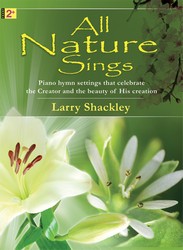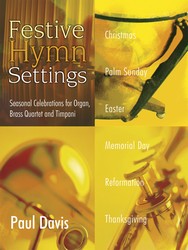- |
User Links
O draw me, Father, after Thee
O draw me, Father, after Thee
Author: Paul Gerhardt (1656); Translator: John Wesley (1739)Published in 42 hymnals
Representative Text
1 O draw me, Saviour, after Thee!
So shall I run and never tire.
With gracious words still comfort me;
Be Thou my Hope, my sole Desire.
Free me from every weight: nor fear
Nor sin can come, if Thou art here.
2 From all eternity, with love
Unchangeable, Thou hast me viewed.
Ere knew this beating heart to move,
Thy tender mercies me pursued.
Ever with me may they abide,
And close me in on every side.
3 Still let Thy Love point out my way;
How wondrous things Thy love hath wrought!
Still lead me, lest I go astray;
Direct my work, inspire my thought;
And if I fall, soon may I hear
Thy voice, and know that love is near.
4 In suffering be Thy love my peace,
In weakness be Thy love my power;
And when the storms of life shall cease,
Jesus, in that important hour,
In death as life be Thou my Guide,
And save me, Who for me hast died!
Amen.
Source: Common Service Book of the Lutheran Church #356a
Author: Paul Gerhardt
 Paul Gerhardt (b. Gräfenheinichen, Saxony, Germany, 1607; d. Lubben, Germany, 1676), famous author of Lutheran evangelical hymns, studied theology and hymnody at the University of Wittenberg and then was a tutor in Berlin, where he became friends with Johann Crüger. He served the Lutheran parish of Mittenwalde near Berlin (1651-1657) and the great St. Nicholas' Church in Berlin (1657-1666). Friederich William, the Calvinist elector, had issued an edict that forbade the various Protestant groups to fight each other. Although Gerhardt did not want strife between the churches, he refused to comply with the edict because he thought it opposed the Lutheran "Formula of Concord," which condemned some Calvinist doctrines. Consequently, he was r… Go to person page >
Paul Gerhardt (b. Gräfenheinichen, Saxony, Germany, 1607; d. Lubben, Germany, 1676), famous author of Lutheran evangelical hymns, studied theology and hymnody at the University of Wittenberg and then was a tutor in Berlin, where he became friends with Johann Crüger. He served the Lutheran parish of Mittenwalde near Berlin (1651-1657) and the great St. Nicholas' Church in Berlin (1657-1666). Friederich William, the Calvinist elector, had issued an edict that forbade the various Protestant groups to fight each other. Although Gerhardt did not want strife between the churches, he refused to comply with the edict because he thought it opposed the Lutheran "Formula of Concord," which condemned some Calvinist doctrines. Consequently, he was r… Go to person page >Translator: John Wesley
 John Wesley, the son of Samuel, and brother of Charles Wesley, was born at Epworth, June 17, 1703. He was educated at the Charterhouse, London, and at Christ Church, Oxford. He became a Fellow of Lincoln College, Oxford, and graduated M.A. in 1726. At Oxford, he was one of the small band consisting of George Whitefield, Hames Hervey, Charles Wesley, and a few others, who were even then known for their piety; they were deridingly called "Methodists." After his ordination he went, in 1735, on a mission to Georgia. The mission was not successful, and he returned to England in 1738. From that time, his life was one of great labour, preaching the Gospel, and publishing his commentaries and other theological works. He died in London, in 17… Go to person page >
John Wesley, the son of Samuel, and brother of Charles Wesley, was born at Epworth, June 17, 1703. He was educated at the Charterhouse, London, and at Christ Church, Oxford. He became a Fellow of Lincoln College, Oxford, and graduated M.A. in 1726. At Oxford, he was one of the small band consisting of George Whitefield, Hames Hervey, Charles Wesley, and a few others, who were even then known for their piety; they were deridingly called "Methodists." After his ordination he went, in 1735, on a mission to Georgia. The mission was not successful, and he returned to England in 1738. From that time, his life was one of great labour, preaching the Gospel, and publishing his commentaries and other theological works. He died in London, in 17… Go to person page >Text Information
| First Line: | O draw me, Father, after Thee |
| German Title: | O Jesu Christ mein schönstes Licht |
| Author: | Paul Gerhardt (1656) |
| Translator: | John Wesley (1739) |
| Language: | English |
| Copyright: | Public Domain |
Tune
MELITA (Dykes)The original chant melody associated with this text [i.e., "Eternal Father, strong to save"] is found in most hymnals of denominations where chant has played a role, including the Lutheran tradition, which has produced much organ music on this well-known chant. The setting here is by John B. Dykes (…
EISENACH (Gesius)
MACHS MIT MIR was first published in the collection of music Das ander Theil des andern newen Operis Geistlicher Deutscher Lieder (1605) by Bartholomäus Gesius (b. Münchenberg, near Frankfurt, Germany, c. 1555; d. Frankfurt, 1613). A prolific composer, Gesius wrote almost exclusively for the churc…
ST. CATHERINE (Hemy)


 My Starred Hymns
My Starred Hymns





